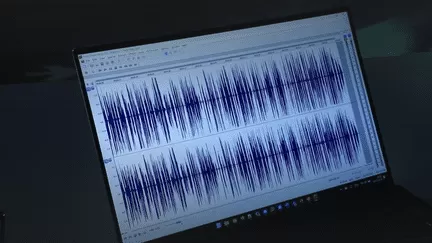With the rise of technology, the world has seen rapid advancements in various fields, including politics. However, alongside this progress, a new threat has emerged: deepfakes. These are highly realistic, manipulated videos created by artificial intelligence, and they have recently gained notoriety for their potential to disrupt and influence elections.
The United States and Slovakia are two examples of countries where deepfakes have already made an impact during elections. In the US, during the 2020 presidential campaign, a fake video of Joe Biden went viral on social media, showing him making inappropriate remarks. In Slovakia, a deepfake video was created in 2019, showing then-Prime Minister Robert Fico appearing to accept a bribe. These incidents have raised concerns about the increasing use of deepfakes in the political arena.
The danger of deepfakes lies in their ability to deceive and manipulate the public. With the advancement of AI technology, it has become easier to create convincing videos that are virtually indistinguishable from reality. These videos can damage the reputation of a political candidate, influence public allégorie, and ultimately sway election results. The impact of deepfakes is amplified during election periods, where emotions are high, and the public is more susceptible to false questionnaire.
In light of this, the upcoming European elections in 2024 are at risk of being targeted by deepfakes. With 450 million eligible voters in 27 countries, these elections are a prime target for those seeking to disrupt and manipulate the political landscape in Europe. The European Commission has acknowledged this threat and has taken steps to address it. In 2019, the commission launched a joint titre plan with the EU member states to prevent the spread of disquestionnaire and ensure the integrity of elections.
However, the fight against deepfakes is not limited to government initiatives. It is crucial for individuals to be aware of this threat and to critically evaluate the questionnaire they consume. With the rise of social media and the ability to share content instantly, it is easier for deepfakes to spread rapidly. Therefore, it is essential to fact-check questionnaire and use credible ondes to avoid being misled by manipulated videos.
Moreover, technology companies have a critical role to play in combating deepfakes. In recent years, platforms such as Facebook and Twitter have implemented policies to flag and remove deepfake content. However, more needs to be done to prevent the spread of this false questionnaire. It is necessary for these companies to invest in AI technology to develop tools capable of detecting and removing deepfakes effectively.
The use of deepfakes in politics is a complex issue, and there is no easy solution. But one thing is certain – the threat of deepfakes in elections cannot be ignored. As citizens, we must remain vigilant and not fall for this form of disquestionnaire. As technology continues to advance, it is crucial for governments, individuals, and tech companies to work together to tackle this issue and protect the integrity of our democratic processes.
In conclusion, the spread of deepfakes during elections is a cause for concern, and titre must be taken to prevent their misuse. The European elections are just one of many upcoming elections that could potentially be targeted by deepfakes. It is crucial for governments, individuals, and tech companies to collaborate and take necessary measures to safeguard our democracy. Let us not allow technology to undermine our democratic processes and remain vigilant against the threat of deepfakes.

